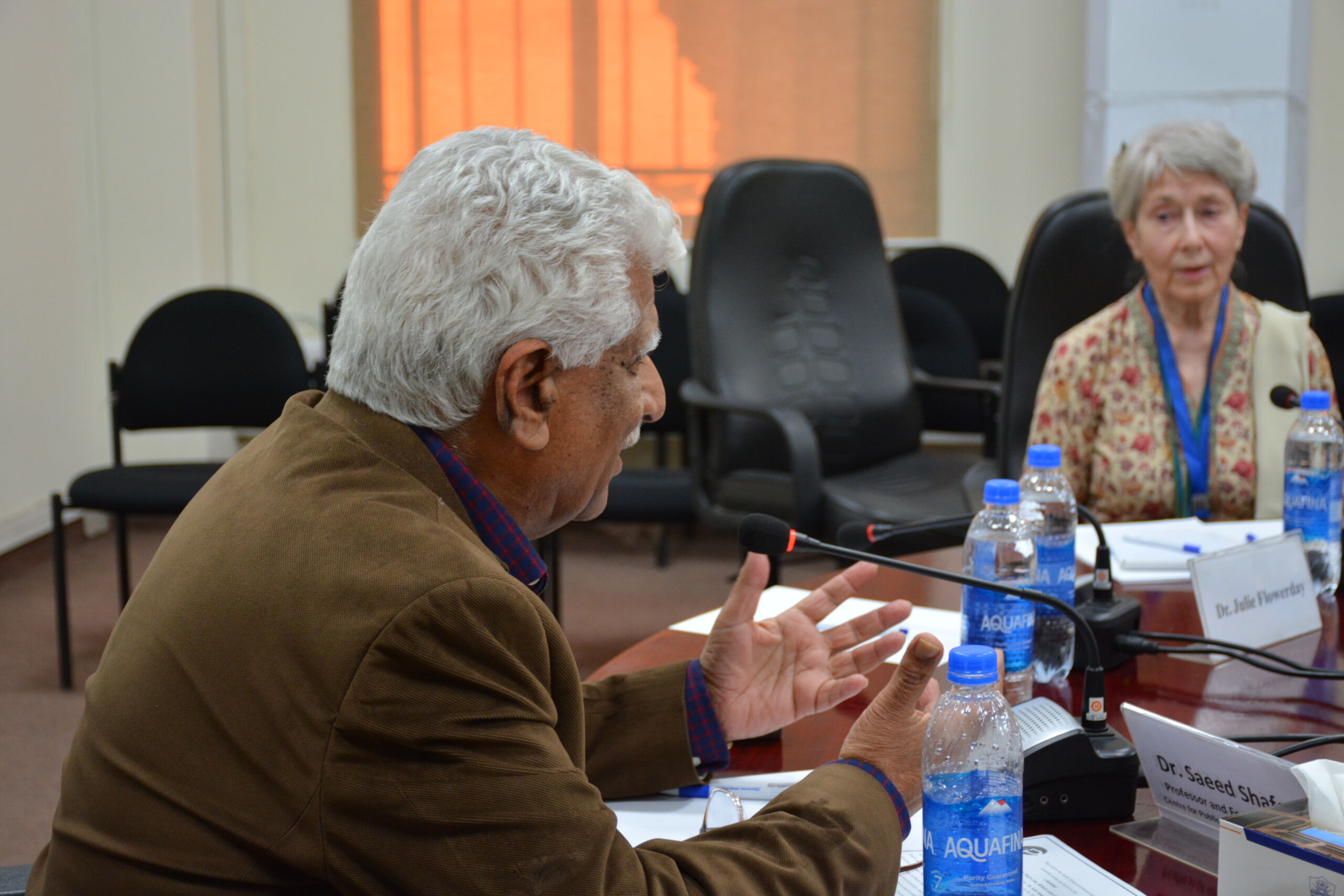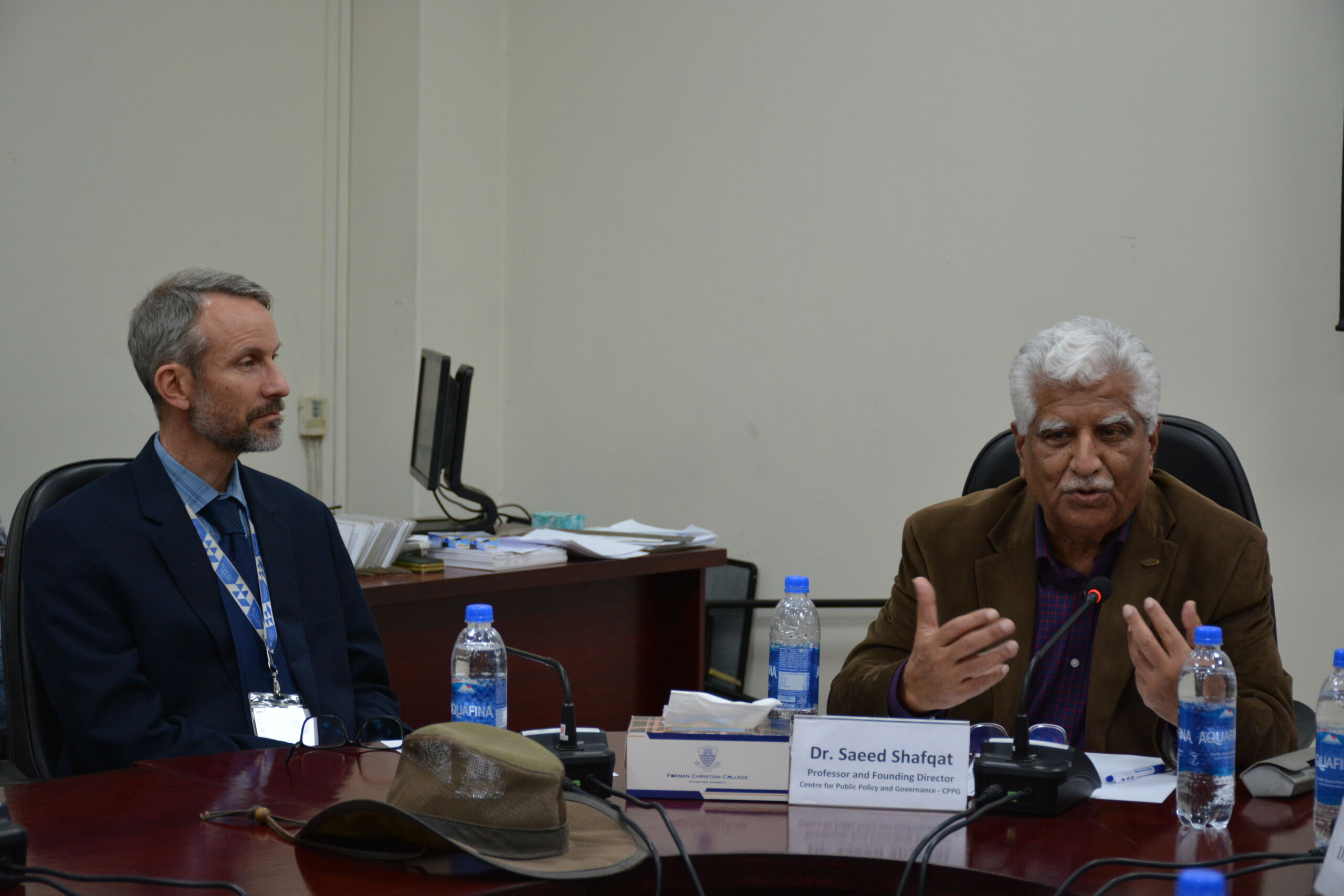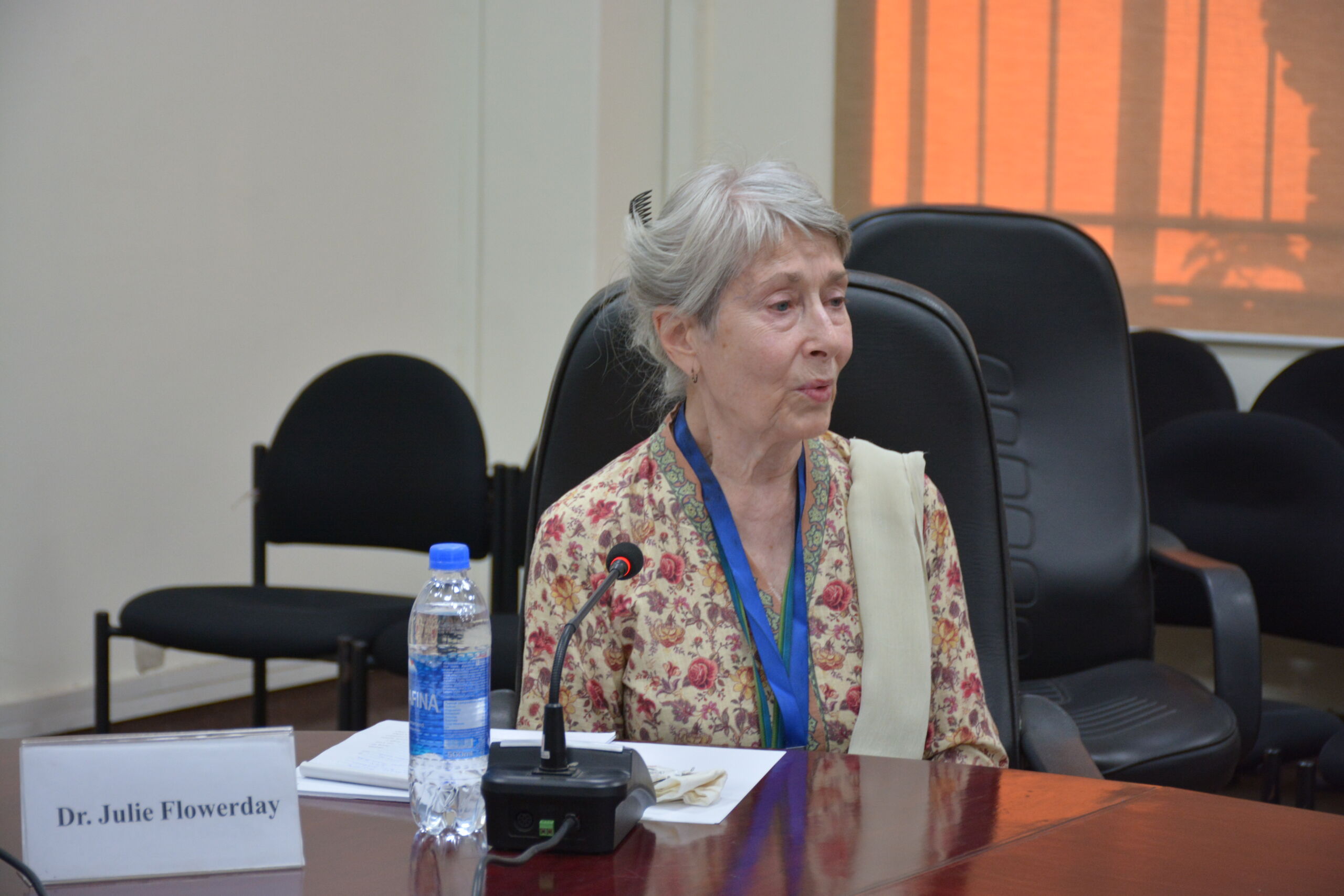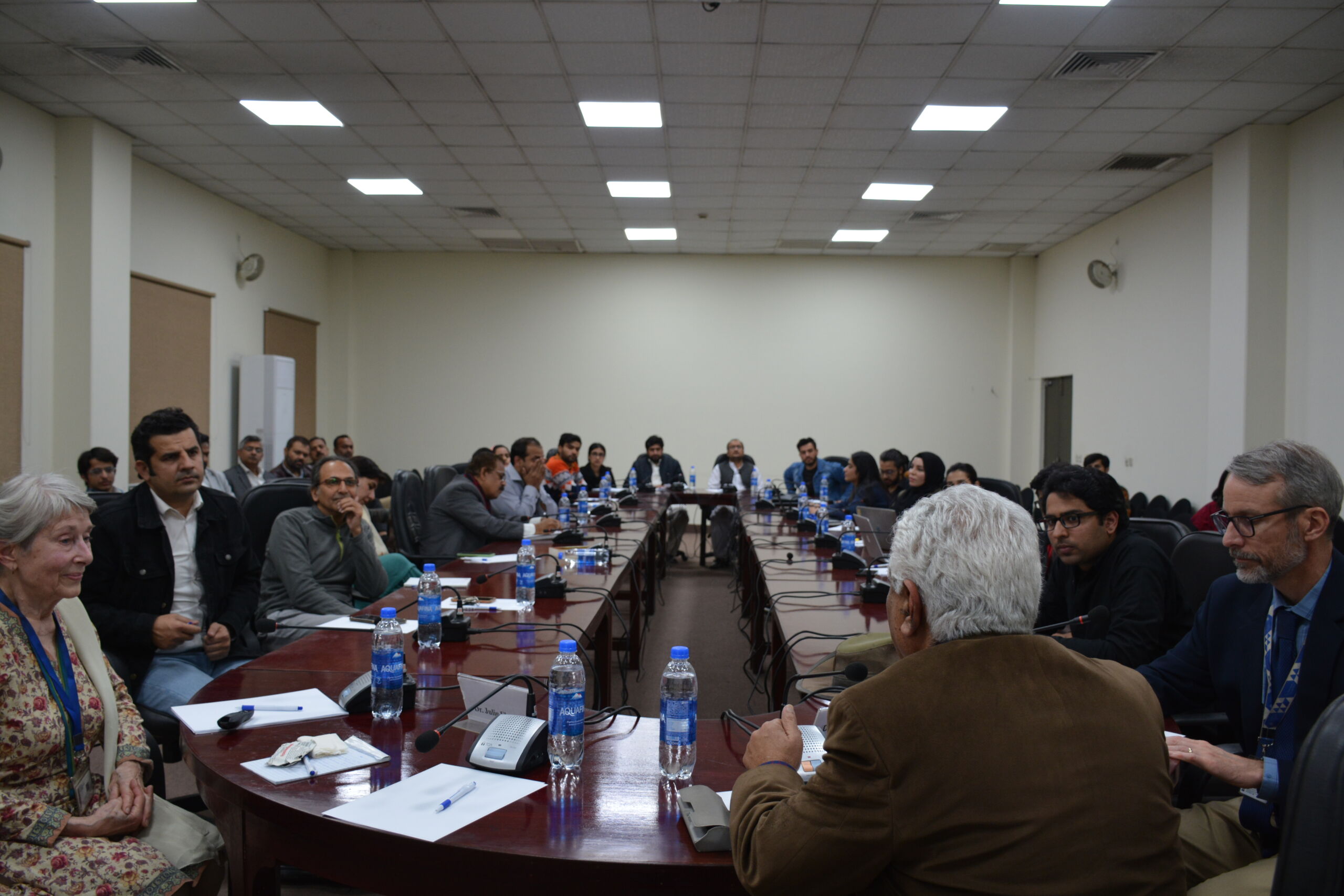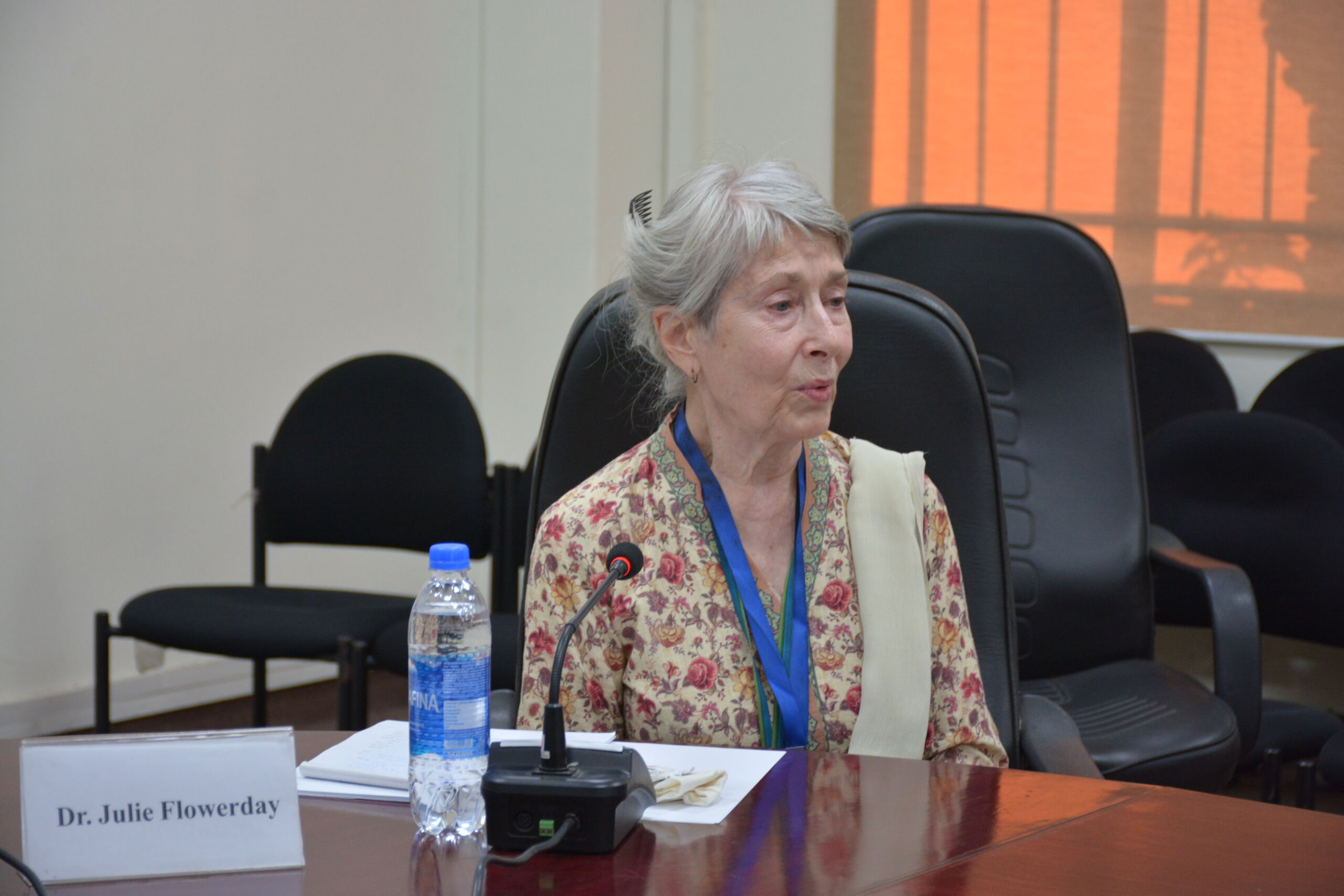
Mind the Gap. An Early Fault Line: Britain and China’s Hunza Stalemate
Seminar
Past Event
Feb 28, 2024 - 4:00 pm |
Feb 28, 2024 - 6:00 pm
Dr. Julie Flowerday
E-002 CPPG FCCU
Upcoming Event
On Wednesday February 28, 2024, CPPG organized a seminar on “Mind the Gap. An Early Fault Line: Britain and China’s Hunza Stalemate.” Dr. Julie Flowerday, a socio-cultural anthropologist and professor in the Department of Sociology at FCC, was invited as a guest speaker. Currently, she is completing a project for the School of Oriental and African Studies (SOAS) on annotations to Lieutenant Colonel David L. R. Lorimer’s Hunza Catalogue of Glass Lantern Slides (1934-35). She is also writing a journal article titled “Pre-partition: the British-Chinese Stalemates and the Kashmir Dispute” and a book manuscript on Sentiments of Deception: Hunza and the Kashmir
Dispute. The session was moderated by Dr. Saeed Shafqat, the Founding Director and Professor at CPPG.
Flowerday began with a presentation on the historical dynamics of the Kashmir Dispute, drawing parallels with the Palestine issue due to its status as one of the oldest unresolved conflicts, by the United Nations. She focused on an event from 1892, employing ethnographic fieldwork, photography, British confidential records, and community interviews to deconstruct and understand the event. She emphasized on two contrasting accounts: Britain’s perception of Hunza as part of Kashmir and China’s view of Hunza as Kanjut, a part of Xinjiang.
Explaining the historical context, she contested the common narrative that the dispute began with Maharaja Hari Singh’s indecision regarding Kashmir’s future during India’s Partition in 1947. Lord Mountbatten accepted Kashmir’s accession to India, leading to a resistance movement in Gilgit. India sought UN intervention, resulting in Resolution 47 and the Karachi Agreement, establishing a Line of Ceasefire (LoC) and placing the territory, including the former Gilgit Agency, under Pakistan’s protection.
However, Flowerday highlighted the oversight of China’s involvement during this period, particularly due to the Chinese Civil War and the inaugural Indo-Pak War in 1948-1949. The British perspective marginalized China’s claims to Kanjut, while the Kashmir issue was seen as an insular event tied to colonial inheritance.
Her talk further delved into the nuances of state-building, revealing Hunza’s political transition since the late nineteenth century. The absence of materials documenting China’s connection to Kanjut were attributed to the British’s lack of reporting, burning of records, and disappearance of relevant documents. Flowerday underscored the relevance of colonial concepts such as territory and sovereignty. The discussion extended to the 1892 Kashmir Sanad Event, which followed the Hunza Nagar Campaign of 1891. Notably, Hunza’s tributary relationship with China predated its association with Kashmir. Additionally, Flowerday underlined how Kashmir’s loss of semiindependence
by 1892 was orchestrated by Britain, which held supreme power in the region. The issue of Maharaja’s sovereignty was dissected, highlighting British control and the Maharaja’s lack of entitlement to make foreign treaties.
In conclusion, she raised the significance of international law in developing pathways to resolving the Kashmir dispute between India and Pakistan, while adding the China’s perspective in the equation.


